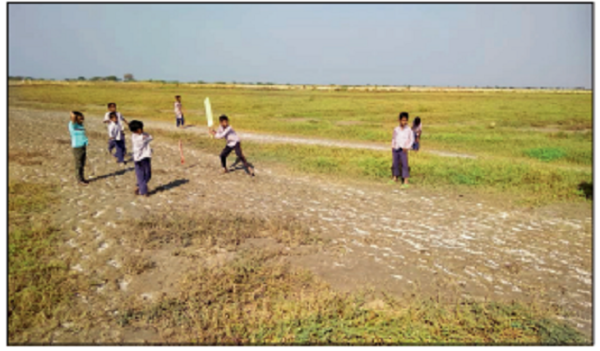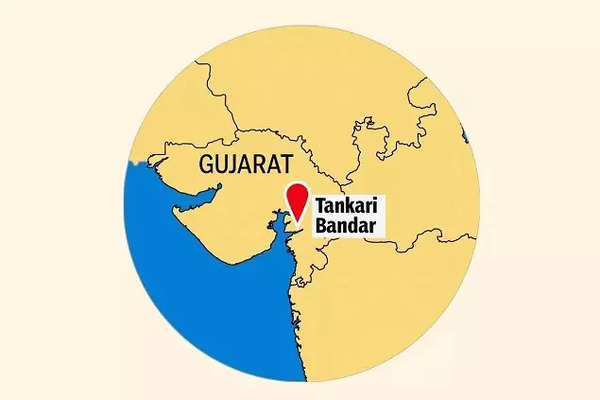What remains indelible is the fact that on the banks of river Dhadhar here, cricket was first played in India in 1721. The area lies about 80 kms from Vadodara.
The trivia is traced back to the 1737 book, “A compendious history of the Indian wars,” an energetic but occasionally indecipherable adventure account by sailor Clement Downing, who multi-tasked for the East India Company between 1715-1723. Downing was a midshipman, a naval officer, and a gun-for-hire. On the book’s cover, he is described as an “engineer“ in the service of the Moghulsthough he likely worked as a gunner.
Downing was part of several campaigns on the sea. He claims to have “seven engagements” with Kanhoji Angre, the skillful and influential Maratha navy chief of the 18th century, and “never having received a wound.” During one such operation, two Company vessels — the Emilia and the Hunter galley – left Bombay to protect boats bringing goods from Cambay, a major trade facility since medieval times.
Downing writes that the boats were stranded on low tide and the vessels were moored at “Chimnaw”, about 30 miles distant from Cambay. In an article, John Drew, author of India and the Romantic imagination, says that the boats “turned aside into the Dhadhar River to lay up in the productive cottongrowing and manufacturing Jambusar pargana.”
As the naval crew waited for the high tide, the crew was attacked by the “Culeys”, (the armed and fighting-fit Kolis of the region) who might have felt that the ship was carrying treasure, the account goes. During this period of forced stoppage, Downing and others spent a part of their time playing the sport. The seaman writes, “We every day diverted ourselves with playing (sic) at Cricket, and other Exercises.” Downing also says that the game was watched by locals, including some men who came on horseback armed with bamboo lances and swords.
Indians employed with the EIC were also travelling in the two boats. Whether any of them participated in those games of cricket — a sport they had neither seen or heard of before — we don’t know. Most likely only the travelling Europeans played those games in what was a proto-version of the sport. The laws of cricket were first codified in 1744.
“I heard stories as a child from my father and grandfather that in 1721, a game of cricket was played by the Britishers near the river,” community leader Ranjit Singh56, was quoted as saying in an AFP report. “I’m proud that the first game of cricket was played in my village.”
Former Jambusar MLA and a Tankari Bandar resident, Sanjay Solanki told TOI, “We are proud to have been brought up in a village which has got such historical importance in India and the world. I am fortunate that the game that started in my village now connects the nation. Cricket is a game that spreads love in India and Tankari Bandar has started spreading that love. Cricket can help ease tensions between India and Pakistan.”

The AFP report also said that “there are claims by other locations — including early 18th-century beach cricket by British soldiers in Kerala — but Downing’s account is the earliest recorded.” Solanki added, “As kids, we would go to Tankari Bandar for swimming. We could see the old British-style houses which got dilapidated as time passed. People stole the doors, bricks, and other things from the houses as the legacy was ignored. Only fishermen’s kids play cricket there now.”
Tankari Bandar has a population of around 6,500 today with 3,400 voters. About 6,100 live in Tankari village, only 400, mostly fishermen, live in Bandar (port). “As the sea has receded from the original Tankari bandar, now nothing is left for fishermen’s families. The sea at Tankari is like a bay now.
In the village, we grow wheat, cotton, and tuvar but wild boars and nilgai do not allow us to harvest the crop.” Gulam Patel, former sarpanch, said, “Our British legacy of major ports and big buildings has ended. Nothing left here. Earlier we would often get a big catch of fish. But now we hardly catch any with industries coming up nearby. Many people have shifted to Jambusar or abroad. Some have settled in Africa, the Gulf and the UK.”
(With inputs from AFP)






